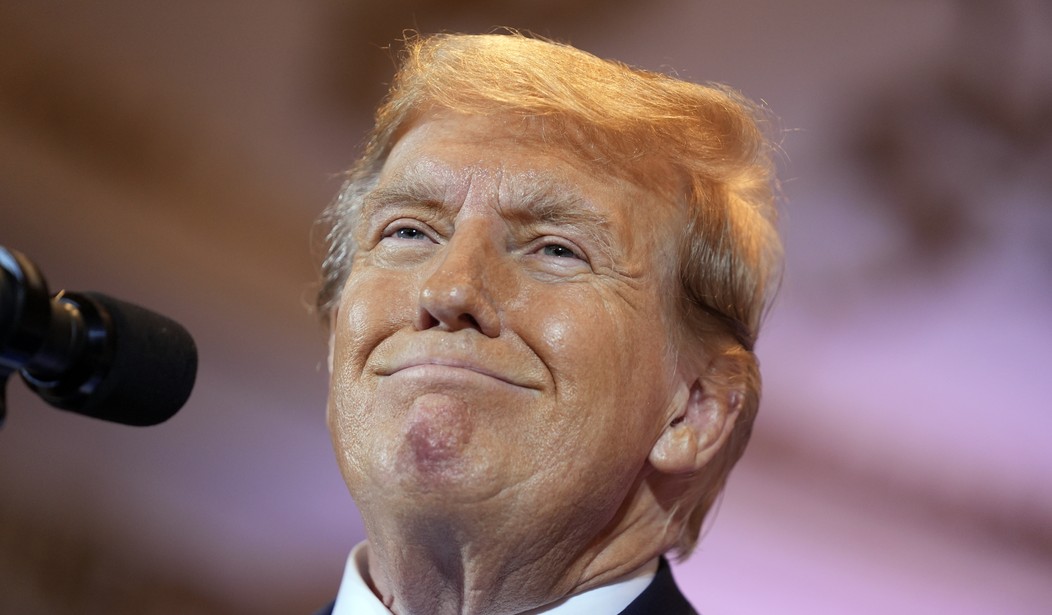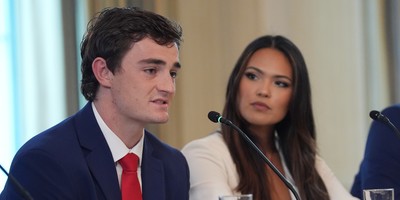Federal Judge Aileen Cannon dismissed the classified documents case brought by Special Counsel Jack Smith against former President Donald Trump on Monday morning, a massive win for Trump and a significant indictment of the Biden administration's legal attacks on the current president's political opponent.
In her decision granting Trump's motion to dismiss the case "based on the unlawful appointment and funding of Special Counsel Jack Smith," Judge Cannon said Smith's appointment by Attorney General Merrick Garland "violates the Appointments Clause of the United States Constitution."
In addition, Judge Cannon found Smith's "use of a permanent indefinite appropriation also violates the Appointments Clause."
The ruling means the classified documents case is now officially closed and, unless an appeals court or ultimately the Supreme Court disagree, there will be no further prosecution for Trump's handling of documents after leaving office.
Trump reacted to the order on Truth Social, saying "this dismissal of the Lawless Indictment in Florida should be just the first step" as "we move forward in Uniting our Nation after the horrific events on Saturday...followed quickly by the dismissal of ALL the Witch Hunts."
"The Democrat Justice Department coordinated ALL of these Political Attacks, which are an Election Interference conspiracy against Joe Biden’s Political Opponent, ME," Trump's post continued. "Let us come together to END all Weaponization of our Justice System, and Make America Great Again!"
The rationale behind Judge Cannon's ruling was raised by Supreme Court Justice Clarence Thomas with his concurring opinion in Trump v. United States. As Townhall reported on Thomas' opinion:
Recommended
"To guard against tyranny, the Founders required that a federal office be 'established by Law,'" says Thomas. "As James Madison cautioned, '[i]f there is any point in which the separation of the Legislative and Executive powers ought to be maintained with greater caution, it is that which relates to officers and offices.'"
Put succinctly by Thomas: "If Congress has not reached a consensus that a particular office should exist, the Executive lacks the power to create and fill an office of his own accord."
When Attorney General Merrick Garland named Jack Smith as Special Counsel, "he did not identify any statute that clearly creates such an office...[n]or did he rely on a statute granting him the authority to appoint officers as he deems fit, as the heads of some other agencies have," writes Thomas. "Instead, the Attorney General relied upon several statutes of a general nature," none of which "appears to create an office for the Special Counsel, and especially not with the clarity typical of past statutes used for that purpose."
More from the opinion penned by Thomas on why Smith's appointment is invalid:
Even if the Special Counsel has a valid office, questions remain as to whether the Attorney General filled that office in compliance with the Appointments Clause. For example, it must be determined whether the Special Counsel is a principal or inferior officer. If the former, his appointment is invalid because the Special Counsel was not nominated by the President and confirmed by the Senate, as principal officers must be... Even if he is an inferior officer, the Attorney General could appoint him without Presidential nomination and senatorial confirmation only if “Congress...by law vest[ed] the Appointment” in the Attorney General as a “Hea[d] of Department.” ... So, the Special Counsel’s appointment is invalid unless a statute created the Special Counsel’s office and gave the Attorney General the power to fill it “by Law.”
This is a developing story and will be updated.

























Join the conversation as a VIP Member